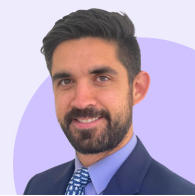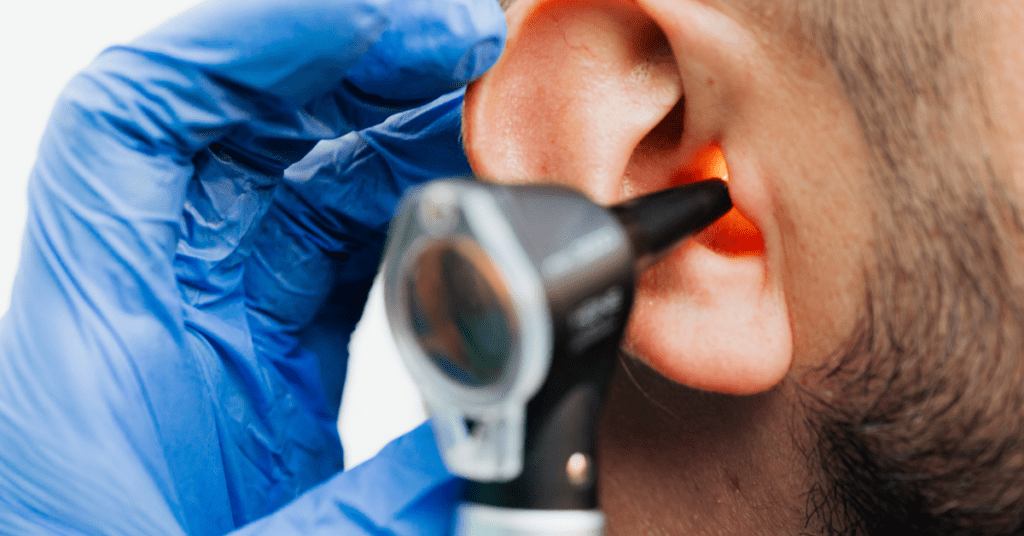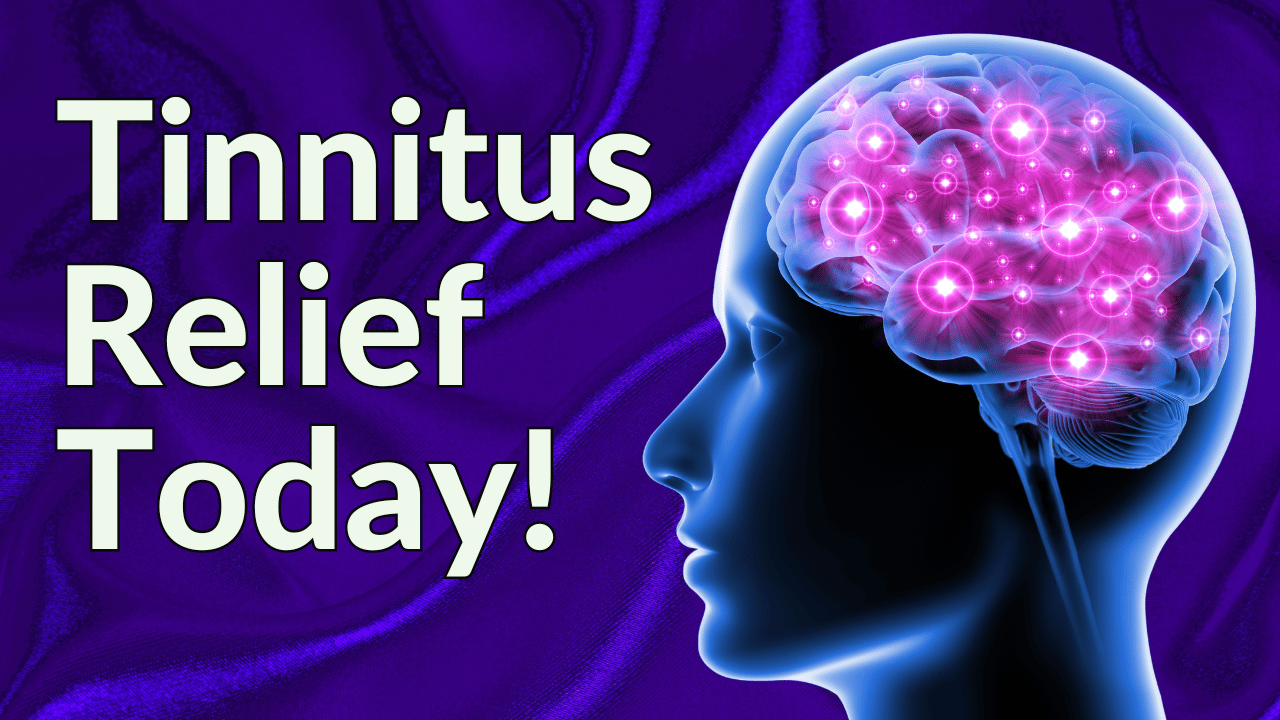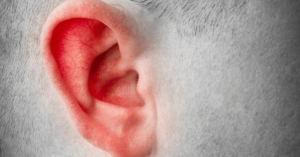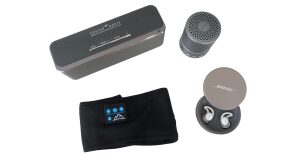What Is A Sudden Hearing Loss?
Sudden hearing loss or sudden deafness is a hearing loss that occurs rapidly. The rapid loss in hearing can take place overnight or over the course of a few days, and usually occurs in only one ear, but can also happen in both ears on rare occasions. The change in hearing may be the result of a conductive, mixed, or sensorineural hearing loss. However, sensorineural hearing loss is the most common type of sudden hearing loss. The degree of hearing loss may vary. Some experience severe hearing loss and others may experience a mild hearing loss. Either way, it is important to see a doctor immediately if you are experiencing a change to your hearing.
What Is A Sudden Sensorineural Hearing Loss?
A sudden sensorineural hearing loss is one that affects one or both inner ears. In contrast to something like an outer or middle ear infection, the inner ear may be harder to identify as the cause of the change in hearing.
"Treble Health helped me reduce my tinnitus by about 80%, and now I can live my life again!"

"Treble Health helped me reduce my tinnitus by about 80%, and now I can live my life again!"
– Steve D.
Book a free consultation to learn which Treble Health solution is right for you. Join Steve and thousands more who have found lasting tinnitus relief.
Most cases are idiopathic, meaning that there isn’t a known cause for the sudden drop in hearing. However, a sudden sensorineural hearing loss can be caused by autoimmune inner ear disease, ototoxicity, neurological issues, viral infection, or neoplasms.
How Do I Know I Have A Sudden Hearing Loss?

The decline in hearing is usually very obvious, however, it may seem like hearing is muffled due to an ear infection or congestion. If you notice a significant change in your hearing, it is important to receive a medical workup and audiological evaluation to determine if there is hearing loss. If hearing loss is noted, the type of hearing loss is important to determine if this is a sudden sensorineural hearing loss or a conductive hearing loss. Those who experience sudden hearing loss may also have sudden symptoms of dizziness or tinnitus.
What Are Other Causes Of Sudden Hearing Loss?
Sudden sensorineural hearing loss is usually caused by a virus, which has impacted the function of the inner ear or hearing nerve. It can also be the result of a stroke, ruptured middle ear tissue, loss of blood flow to the inner ear, other conditions within the body, or physical trauma that has damaged part of the inner ear or hearing nerve. Issues within either the outer or middle ear can cause the impression of a sudden hearing loss, but would not be considered a sudden sensorineural hearing loss. A head trauma may also bring about a change in hearing.
How Is Sudden Hearing Loss Diagnosed?
It is important to seek prompt medical attention, usually from an ear, nose, and throat doctor. The ENT physician will examine your ears to rule out a conductive hearing loss, by looking in your ear canal, to see if there is wax, middle ear fluid, signs of a sinus infection, etc. The ENT will usually refer you for hearing testing, but in some cases, may also recommend blood tests or a magnetic resonance imaging test (MRI). In some cases, blood circulation problems, high blood pressure, or cardiovascular disease can be the culprit. If these issues are managed, symptoms may improve. If you are also experiencing dizziness or imbalance, then balance tests may be recommended to help further determine the cause and the extent of the sudden sensorineural hearing loss. In many cases an underlying cause may not be found, but hearing, balance, and medical testing are part of standard medical care for a sudden hearing loss.
How Is Sudden Hearing Loss Treated?
Steroids are a common treatment and usually the first line of defense for a sudden hearing loss. A course of oral steroids are usually prescribed, as decreasing swelling in the auditory nerve may help. Outside of the oral steroids (steroids in pill form), intratympanic steroid injections, or injections that are directly administered through the ear drum, may also be used to deliver a higher dose of steroids directly to the inner ear. The doctor may also prescribe antibiotics if you are found to have an ear infection. Hyperbaric oxygen therapy is one form of treatment that has been found to have a positive impact both clinically and in research studies. The belief is that damage to the inner ear can be reversed or reduced by introducing high levels of oxygen to the inner ear.
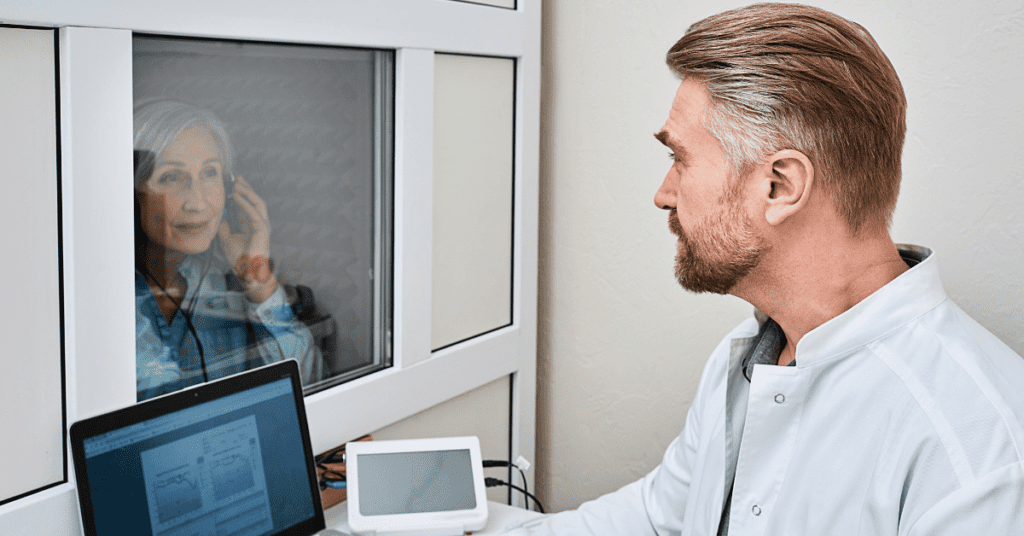
Immediate treatment is most effective, but not all sudden hearing losses resolve. If a hearing loss persists for several months or up to a year, then hearing devices may be recommended to treat the hearing loss. Depending on the degree of hearing loss as determined by pure tone audiometry, different hearing devices may be prescribed. For severe to profound hearing losses or ones where conversational speech is not possible even with hearing aids, a cochlear implant may be considered as a possible treatment option.
What Are The Differential Diagnoses For Sudden Hearing Loss?
Sudden hearing loss occurs in Meniere’s disease, which is a disease causing fluid imbalance in the inner ear. It causes sudden changes in hearing, episodes of vertigo, aural fullness, and tinnitus. Autoimmune inner ear disease can also cause sudden sensorineural hearing loss. This is a condition where the body’s immune system, responsible for fighting illness, attacks the healthy tissues of the inner ear. An acoustic neuroma, which is a benign growth on the hearing nerve, can also cause changes in hearing, but usually occur along with a unique pattern and series of symptoms.
What Is The Prognosis Of A Sudden Sensorineural Hearing Loss?
In most causes, an identifiable cause is not possible due to how small and isolated the inner ear is. Prompt treatment and timely treatment is most effective and may help promote recovery. In many cases, hearing spontaneously improves. If someone had normal hearing prior to the sudden hearing loss, their hearing may improve fully or partially, meaning they may be left with some degree of permanent hearing loss. The timeframe for recovery may also vary. Some note improvement in one to two weeks; whereas, others it may take longer.
Next Step: Book Free Consultation
- 75% of patients reduced their tinnitus within three months after following our recommendations.
- "I feel like Treble Health literally gave me my life back." - Randy S. (verified customer)
- Join thousands of people who have reduced their tinnitus after scheduling a free consultation.



